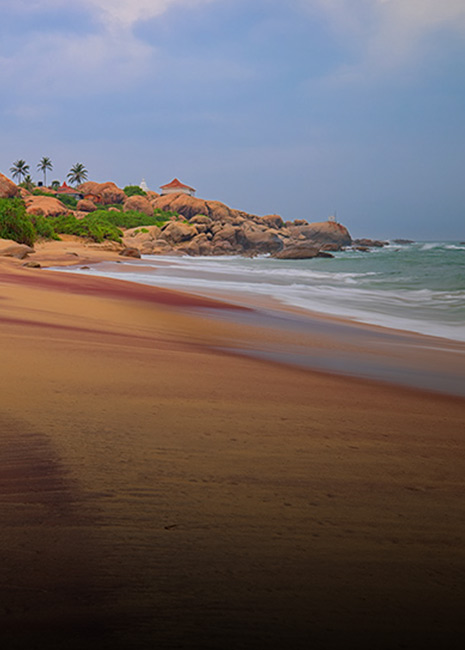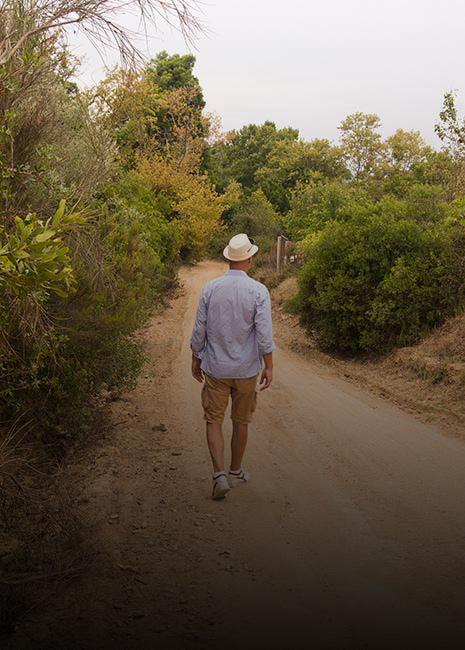Rekawa Beach: A Haven for Sea Turtles
Rekawa Beach is renowned for its role in sea turtle conservation. The beach is home to five species of sea turtles, including the endangered green turtle, loggerhead turtle, olive ridley turtle, hawksbill, and leatherback turtle. Each year, female turtles return to the same shores where they were born to lay their eggs, a fascinating natural phenomenon that occurs mostly at night. The turtles' nesting behavior is crucial for the continuation of their species, and Rekawa Beach is considered one of the best places in the world to observe this delicate process.
A Night of Turtle Watching
Turtle watching at Rekawa Beach is a magical experience, where visitors have the unique opportunity to see turtles come ashore to nest under the soft glow of the moon. The turtles typically arrive after sunset, often in the late hours of the evening or early into the night. With conservation experts accompanying each tour, you’ll not only get to witness the turtles in their natural habitat but also learn about their behavior, biology, and the importance of conservation efforts.
Guided tours ensure minimal disturbance to the turtles. Conservationists follow strict protocols to ensure the turtles are not stressed by human presence, allowing you to watch the nesting process from a safe distance. Under the moonlight, turtles emerge from the waves, their massive bodies glistening as they slowly crawl across the sand. They dig deep nests, lay their eggs, and then return to the ocean, often leaving behind an emotional sense of awe.
The Role of Conservation Experts
Rekawa Beach has been a focal point for turtle conservation since the 1990s. Several local and international organizations, in partnership with the Sri Lankan government, have worked to protect the turtles and their nesting sites. These conservation programs aim to protect the turtles from various threats, including poaching, habitat destruction, and climate change.
As a visitor, you’ll gain insight into these vital conservation efforts. Experienced guides and marine biologists explain how the turtles' nests are monitored, how eggs are protected, and the ongoing work to ensure the future of sea turtle populations. The role of local communities is also highlighted, with many individuals participating in turtle protection programs, including patrols to guard against poaching and beach cleanups to maintain the turtles’ habitat.
A Responsible Experience
One of the most important aspects of turtle watching at Rekawa Beach is the emphasis on sustainable and responsible tourism. While the allure of watching turtles is strong, conservation experts emphasize the importance of maintaining a respectful distance to avoid disturbing the turtles’ natural behavior. Flash photography, loud noises, and intrusive behavior are strictly prohibited to ensure the safety and comfort of the turtles.
Furthermore, the tours are designed to have a minimal environmental impact. By participating in these well-organized turtle-watching excursions, you contribute to the funding of turtle conservation initiatives, helping to protect the turtles and preserve their nesting habitats for future generations.
When to Visit
Turtle watching at Rekawa Beach is possible year-round, though the peak nesting season occurs between October and April, with the best chances of seeing nesting turtles during the months of November through March. Guided tours are available in the evenings and often start after sunset, continuing late into the night, so it’s important to bring comfortable clothing and shoes for the excursion.
Conclusion
Turtle watching at Rekawa Beach offers an unparalleled opportunity to witness the majesty of sea turtles nesting under the moonlight, an experience that is as enchanting as it is educational. With the guidance of conservation experts, visitors can enjoy this natural wonder while also supporting efforts to preserve these ancient creatures. Whether you're a nature enthusiast, a wildlife photographer, or someone simply looking for a peaceful yet awe-inspiring experience, Rekawa Beach provides a once-in-a-lifetime opportunity to observe sea turtles in their natural habitat and contribute to their conservation.







